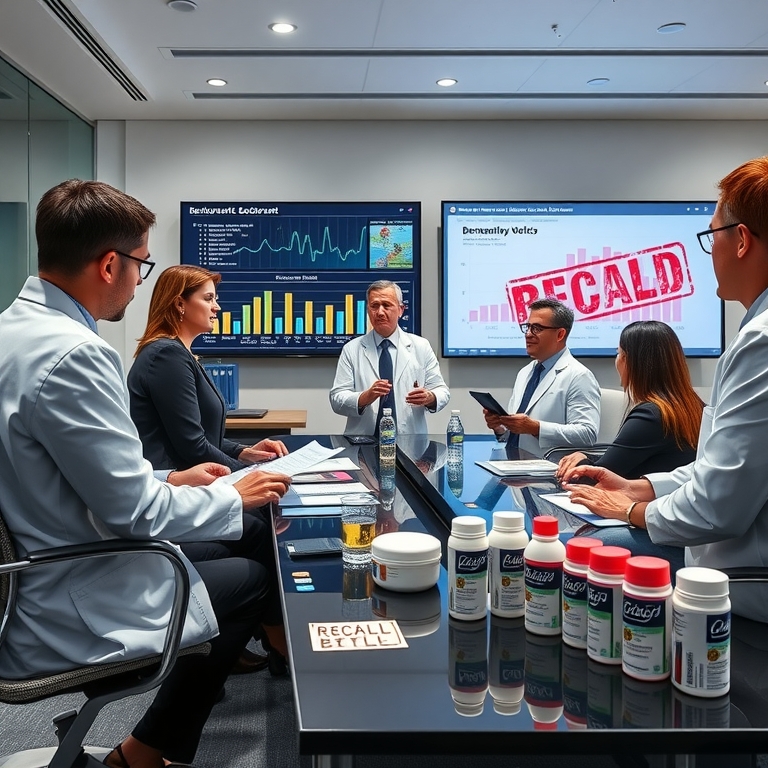In a significant move that has sent ripples through the personal care industry, the United States Food and Drug Administration (FDA) has initiated a recall of several popular deodorant brands due to concerns over benzene contamination. This decision comes as part of ongoing efforts to ensure consumer safety in the wake of increasing scrutiny over product ingredients and their potential health impacts. Benzene, a volatile organic compound, is classified as a human carcinogen by multiple health agencies worldwide, including the World Health Organization and the Centers for Disease Control and Prevention. Its presence in consumer products, particularly those applied directly to the skin, raises substantial health concerns, prompting swift regulatory action.
The recall has been prompted by recent independent laboratory tests that identified trace amounts of benzene in a range of aerosolized deodorant products. These findings have alarmed both consumers and health professionals, considering the compound’s association with serious health conditions, including leukemia and other blood disorders. The FDA’s proactive approach underscores its commitment to safeguarding public health, particularly as consumers grow increasingly vigilant about the ingredients in their everyday products.
The deodorant brands affected by this recall span several household names, underscoring the widespread nature of this issue within the industry. These companies now face the dual challenge of managing the recall process while also navigating the potential damage to consumer trust and brand reputation. The recall encompasses specific batches of products, which have been identified through rigorous testing processes, ensuring that contaminated items are swiftly removed from retail shelves. Companies are cooperating with the FDA to facilitate the recall, with some opting to halt production temporarily while further investigations are conducted.
This situation highlights the complexities facing manufacturers in the personal care sector, where consumer safety and brand integrity are paramount. For these companies, the recall represents not just an immediate logistical challenge but also an opportunity to reinforce their commitment to product safety and transparency. Many affected brands have already launched comprehensive communication strategies aimed at informing consumers and mitigating concerns, emphasizing their dedication to rigorous quality control measures and compliance with regulatory standards.
The recall also raises broader questions about regulatory oversight and the processes in place to detect and address contaminants in consumer products. The FDA, while commended for its decisive action, is likely to face scrutiny regarding the efficacy of existing regulations and the need for enhanced testing protocols. This incident could serve as a catalyst for regulatory reform, prompting a reevaluation of industry standards and the implementation of more stringent testing requirements to prevent similar occurrences in the future.
For consumers, the recall serves as a stark reminder of the importance of staying informed about the safety of personal care products. It underscores the necessity of being vigilant about product ingredients and the potential risks associated with their use. The rise of digital platforms and social media has empowered consumers to demand greater transparency, and this incident may further accelerate the shift towards more informed purchasing decisions.
From an industry perspective, the recall could have far-reaching implications. It may spur manufacturers to invest more heavily in research and development to ensure product safety and to explore alternative formulations that minimize the risk of contamination. This focus on innovation could drive significant changes in the personal care market, with companies striving to develop products that meet both consumer expectations and rigorous safety standards.
Additionally, the recall is likely to influence the regulatory landscape, potentially leading to more stringent guidelines governing the use of chemicals in consumer products. Industry leaders may find themselves advocating for clearer, more comprehensive regulations to ensure a level playing field and to rebuild consumer confidence. Collaboration between regulatory bodies, manufacturers, and independent testing organizations may become increasingly essential to address these challenges effectively.
In conclusion, the FDA’s recall of deodorant brands over benzene concerns represents a critical moment for the personal care industry. It highlights the ongoing need for vigilance in product safety and the importance of maintaining consumer trust through transparency and adherence to the highest standards. As the industry navigates this complex landscape, the lessons learned from this incident are likely to shape future practices, driving innovation and reinforcing the commitment to consumer safety. For consumers, it serves as a reminder of the power they wield in demanding accountability and safety in the products they use daily. As the situation continues to unfold, all eyes will be on the industry to see how it responds to this challenge and what measures will be implemented to prevent similar issues in the future.

Leave a Reply